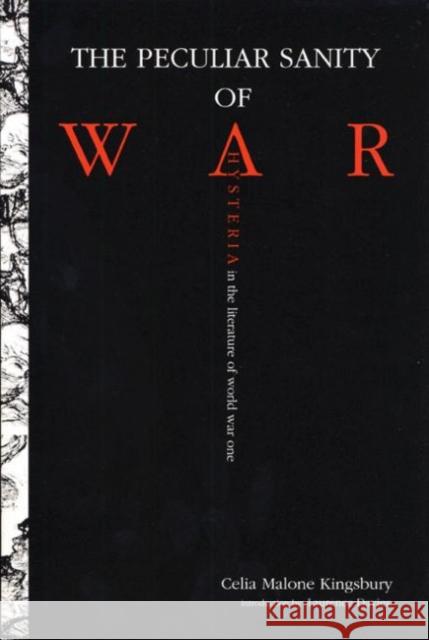The Peculiar Sanity of War » książka
The Peculiar Sanity of War
ISBN-13: 9780896724822 / Angielski / Twarda / 2002 / 206 str.
During wartime, paranoia, gossip, and rumor become accepted forms of behavior and dominant literary tropes. The Peculiar Sanity of War examines the impact of war hysteria on definitions of sanity and on standards of behavior during World War I. Drawing upon Joseph Conrad s comprehensive understanding of war s impact on soldiers and civilians alike, and extending Michel Foucault s construction of madness and reason, Kingsbury expands the definition of war neurosis to include peculiar sanity at home as well as on the front lines. While other investigations of World War I consider shell shock to be the only definable war madness, Kingsbury is the first to build a powerful argument around the insanity of the home front s vilification of the enemy. Ultimately, Kingsbury s study establishes peculiar sanity, among civilians and soldiers, as an inevitable response to war s madness.The Peculiar Sanity of War begins by locating the roots of war mania in Edwardian hypocrisy, then moves on to examine the way propaganda operates in nontraditional texts, such as housekeeping guides, and in the novels of Joseph Conrad, Ford Madox Ford, H. G. Wells, Rebecca West, Edith Wharton, Willa Cather, Rudyard Kipling, Virginia Woolf, and H. D. Celia Kingsbury s eloquent and moving book . . . brings together war and madness in unexpected ways. Beginning with a phrase from Joseph Conrad, she diagnoses the condition of a culture gone awry, a peculiar sanity. . . . from Laurence Davies s foreword"











